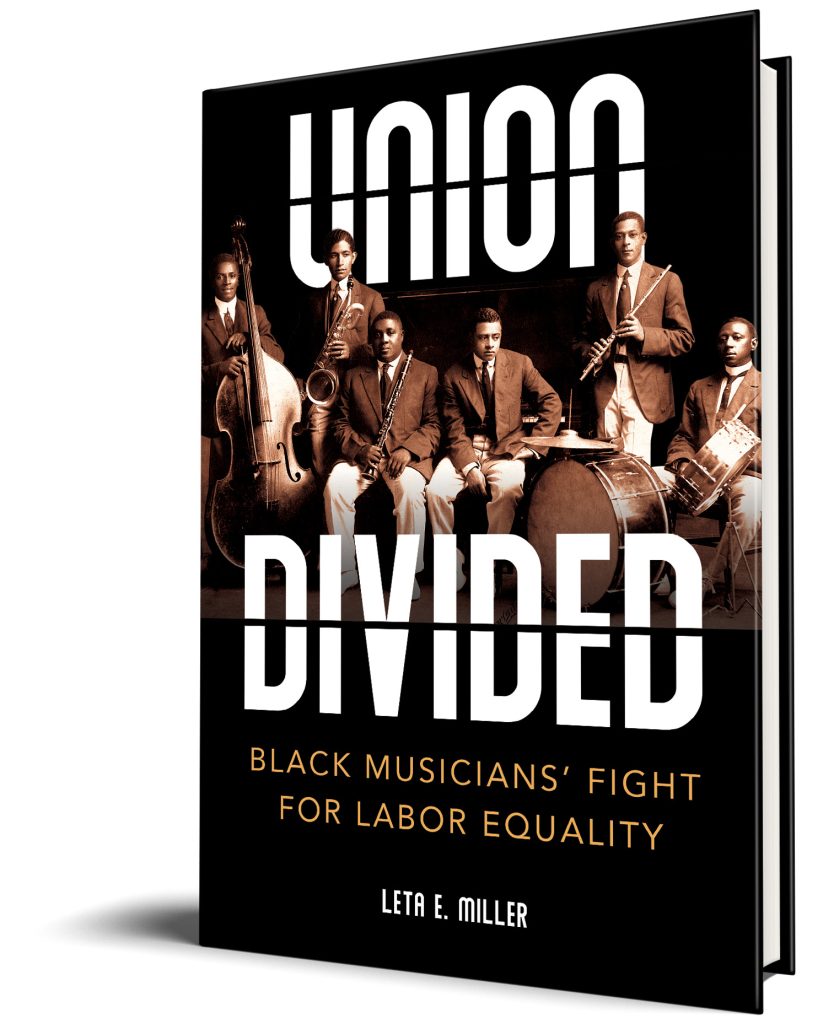Leta E. Miller, author of Union Divided: Black Musicians’ Fight for Labor Equality, answers questions on her new book.
Q: Why did you decide to write this book?
The story of the formation and ultimate dismantling of segregated locals within the American Federation of Musicians (AFM) serves as a fascinating case study that illustrates how twisted and complex the process of combatting systemic racism can be. In the early years of the twentieth century, Black musicians throughout the country judged that their best opportunity for meaningful and well-paying employment lay in establishing monoethnic locals in which they could control audition requirements, set their own pay scales, and gain representation at national conventions. The AFM, which had no mandate for racial separation, permitted the establishment of these Black units, which controlled the same territories as much larger white locals. Unsurprisingly, this dual local system, which eventually operated in more than fifty cities, led to bitter struggles over employment, particularly during the Great Depression, when white musicians began to impinge on territories previously dominated by attractive Black bands. In the 1950s, when the Federation began to institute policies to eliminate segregated locals, it found the road to amalgamation extremely rocky. In some cases, white locals resisted, but in numerous other instances the Black locals themselves opposed merger with much larger white bodies, justifiably fearing that their members would be submerged and thereby disadvantaged. In the end, all of the dual locals merged, but not without legal mandates such as state fair labor practice laws and the 1964 Civil Rights Act. Intensive negotiations led to different solutions in different cities and the Federation itself sought remedies to counteract the loss of advantages that had previously accrued to Black union members, a process that continues to the present day.
Q: What is the most interesting discovery you made while researching and writing your book?
That the segregated locals of the American Federation of Musicians, which operated in more than fifty cities throughout the country, actually arose at the explicit request of Black musicians themselves, who felt that monoethnic unions offered the best opportunity for high wages and meaningful work.
Q: What myths do you hope your book will dispel or what do you hope your book will help readers unlearn?
The myth that monoethnic aggregations always result from overt prohibitions and that they are necessarily injurious. There is an inherent tension between the ethical mandates of interracial amalgamation and some potential benefits that can arise from racially separated organizations. Indeed, monoethnic organizations, even when they result from deliberate rejection, can represent positive determination.
Q: What is your advice to scholars/authors who want to take on a similar project?
Prepare to be surprised at what you discover. Approach your subject with an open mind and be willing to admit that your original hypotheses might have been wrong—or at least vastly oversimplified.
Q: What do you like to read/watch/or listen to for fun?
Mystery novels, historical fiction
Leta E. Miller is an emerita professor of music at the University of California, Santa Cruz. She is the author, coauthor, or editor of fourteen books, including Music and Politics in San Francisco, Chen Yi, and Aaron Jay Kernis.

